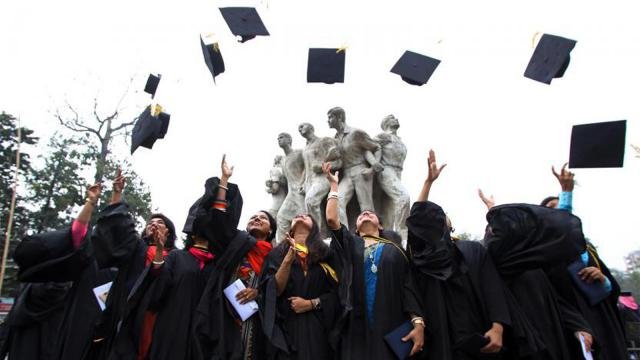Why Bangladeshi university is not in the list of the best ?
 We have to be frustrated as well as many reputable organizations publish the best university rankings in the world. The number 500 on the list excludes any university name in Bangladesh. but why?
We have to be frustrated as well as many reputable organizations publish the best university rankings in the world. The number 500 on the list excludes any university name in Bangladesh. but why?
Although there is no doubt about the lack of place in the list of the best universities, there is no question of authority in this regard, despite the 'sadness' among the general teacher and students. Rather they ask questions about in-exchange rankings.
In the face of criticism the authorities of the public universities are often told to say, their organization is proud of history and heritage. Most admirers of the country are admitted to their institute. Despite the limitations, they give the best lessons to the students. Graduates are leading the country. They are working with good reputation in the international arena.
At the present time, the importance of the rankings after such cleansing is understandable whether the authorities of these countries understood at all, the question arose.
According to Shishir Bhattacharya's 'History of the University: Adiparva', the origins of university in Europe (fifth to fifteenth century) Arab-Europe communication is one of the reasons for the start of the university. Together with social, political, economic and historical needs. At that time most universities were established in private ventures. Students from universities, cities, cities, and country-to-country students had to travel from the university. Knowledge was spreading in international exchange of teachers and students. The wealth of knowledge was getting enriched. For any reason, any authority tried to separate the university from the world. But it did not work. Knowledge-based unity was created by printing obstacles. The university shows the path of light to the medieval people.
At the end of the medieval period the number of universities continued to increase in Europe. In the modern era, this trend has come to an end. Shishir Bhattacharya reports that in the early days of modern times (from the end of the fourteenth century to the eighteenth century), the universities of Europe made great progress in terms of creativity and innovative research. In the eighteenth and nineteenth century, more than 40 universities were established in the United States in the European University over the Atlantic. These gradually became strong opponents of European universities. After the Second World War, North America, then Europe, became the first choice of people all over the world in higher education.
Higher education, like civilization, is progressing through evolution. Higher education is no longer the case. Now the competition has spread. Universities, the government is running behind the rankings. London-based journalist The Economist has recently reported on a change in the university's global ranking and higher education. This report is available in the report on how important the ranking is at the moment of higher education. There is also an example of how the ranking is changing higher education.
In the era of knowledge-based economics, the university is no longer considered as a center for general education and certification. The end of the tradition is the end of the day. The university is now the engine of future prosperity. The important source of valuable information or knowledge is the University. They make human resources. New concepts are born.
Higher education is not restricted to country or regional boundaries. Higher education has globalization. So the competition between universities is global Ranking of organizations such as Shanghai, Times Higher Education (THE), and QS brings new levels of competitiveness to higher education. Honoring this global competition, progressing towards prosperity. Do not take part in the competition.
In the new reality, the governments of different countries are also moving. They are taking initiative for the establishment of world-class universities, inclusion and progress in ranking. Spending huge money in this sector For example, China, India, Singapore, South Korea, Taiwan, France and Germany can be talked about. In this case, especially the success of China is the eyeball. Of the top 500 universities in the Shanghai ranking, there are 45 in China.
Our neighboring country has announced that India will take 20 of its universities world wide. Even countries such as Nigeria have decided to include at least two universities in the top 200 of the world by 2020.
There is no such target in Bangladesh. There is a tendency to 'not be lending' to the rankings. In November last year, initiatives for publishing a ranking of private universities of the country were noticed. The BRAC University is at the top of this banking initiative of Bangla Tribune-Dhaka Tribune. Second North South University. Third Independent University, Bangladesh (IUB). Though the debate and criticism of this ranking criteria, the initiative is welcomed as a 'start'.
Education standards are not included in the international ranking of the university. The maximum emphasis is on research. For example, the Shanghai ranking is full-time researched. Ranking companies study science and basic science in scoring seriously.
With the importance of scientific research in the ranking competition, there has been a major change in the field of higher education. Allocation of scientific research is increasing. Amount of research is increasing. These research are contributing to the welfare of human beings.
Internationalization of knowledge is also due to ranking. The researchers are going to each other's university Sharing knowledge among themselves. Global problems and